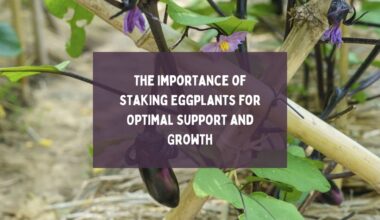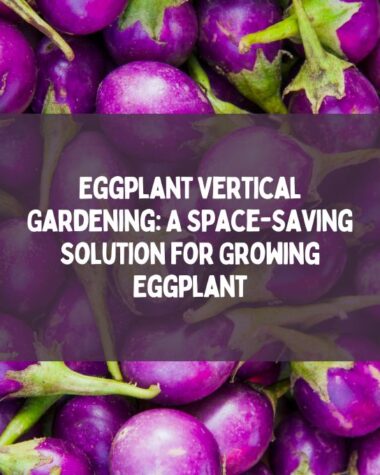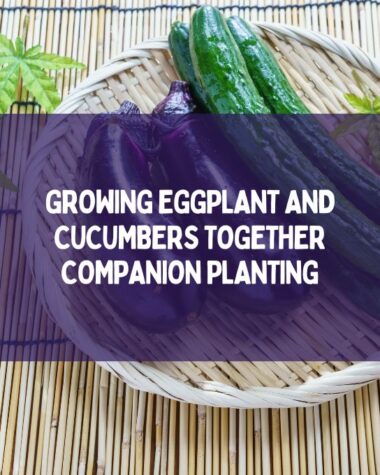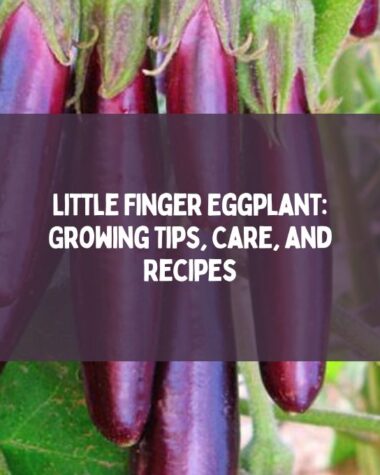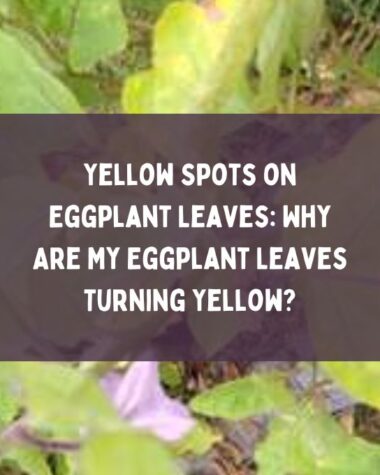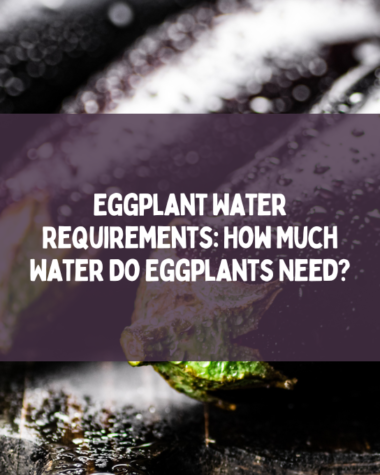Eggplants, also known as aubergines, are a popular vegetable in many cuisines around the world. With their rich, meaty texture and mild flavor, they are versatile and can be used in various dishes.
However, when it comes to planting eggplants in your garden, it’s essential to consider their companions. Not all plants thrive when placed next to eggplants, as some can hinder their growth or attract pests.
In this article, we will explore the plants that you should avoid planting next to eggplants and provide insights into the reasons behind these recommendations.
Why is Choosing the Right Companions Important for Eggplants?
Related Reading
- Eggplant Pests Control: Integrated Pest Management for Sustainable Cultivation
- Companion Planting Secrets: Growing Eggplants and Tomatoes Together
- Growing Eggplant And Cucumbers Together Companion Planting
- Eggplant Companion Plant Gardening: Tips And Tricks For A Bountiful Harvest
- 18 Common Aubergine Growing Problems and Their Solutions
Eggplants, like any other plant, interact with their surroundings. The plants you choose to grow alongside eggplants can have a significant impact on their overall health and productivity.
Companion planting, the practice of strategically placing compatible plants together, can offer several benefits, including
- Pest control: Some plants naturally repel pests or attract beneficial insects that can protect eggplants from harmful pests.
- Nutrient sharing: Certain companion plants can improve soil fertility by fixing nitrogen or providing other essential nutrients that benefit eggplants.
- Space utilization: Companion plants can help maximize the use of available garden space, ensuring efficient utilization of resources.
- Enhanced pollination: Selecting companion plants that attract pollinators can increase the chances of successful pollination for eggplants and improve fruit production.
By understanding which plants should not be grown next to eggplants, you can ensure optimal growing conditions and maximize the productivity of your eggplant crop.
What Not to Plant Next to Eggplants?
Potatoes
Potatoes and eggplants belong to the same plant family, Solanaceae. Growing them together increases the risk of attracting pests like Colorado potato beetles, which can damage both crops. Additionally, they have similar nutrient requirements, competing for resources in the soil.
Tomatoes
Although eggplants and tomatoes are from the same family, their close proximity can create favorable conditions for diseases like early and late blight. These diseases can spread rapidly and severely damage both crops.
Peppers
Peppers, another Solanaceae family member, can attract similar pests as eggplants, such as aphids and flea beetles. Planting them together can create a concentration of these pests, leading to increased damage.
Fennel
Fennel is known for its strong aroma and can adversely affect the growth of neighboring plants. It releases chemicals that inhibit the growth of other plants, including eggplant.
Beans
Beans are nitrogen-fixing plants, meaning they have the ability to convert atmospheric nitrogen into a form that is readily available to other plants. While this may seem beneficial, eggplants prefer moderate levels of nitrogen, and excessive nitrogen from beans can lead to excessive leafy growth but limited fruit production.
Cabbage
Planting cabbage near eggplants can result in competition for nutrients and space. Cabbage requires ample space for its growth, which can overshadow and hinder the development of eggplants.
Onions
Onions emit a substance called “allyl sulfide,” which can inhibit the growth of many plants, including eggplants. Avoid planting onions and eggplants in close proximity to ensure the optimal growth of both crops.
Mint
Mint is a vigorous grower and can quickly take over a garden bed if not contained. Its aggressive nature can overshadow and stunt the growth of neighboring plants, including eggplants.
Rue
Rue is a perennial herb with a strong scent. It can repel many pests, but it can also inhibit the growth of nearby plants, including eggplants. It’s best to keep these two plants separate.
Kale
Kale, a leafy green vegetable, can compete with eggplants for sunlight and nutrients. Both crops require adequate space and sunlight, so it’s advisable to avoid planting them together.
Conclusion
Choosing the right companions for your eggplants is crucial for their overall health and productivity.
By avoiding planting certain plants next to eggplants, you can prevent the spread of diseases, minimize pest problems, and optimize the growth of both your eggplants and other crops.
Remember to consider the specific needs and requirements of each plant before deciding on their placement in your garden.
With thoughtful companion planting, you can create a harmonious and thriving garden that yields abundant and healthy eggplants.
Related Reading
- An Overview of Cucurbitaceae Family
- Cucumber Benefits for Skin: And How We can Use it
- When to Feed Tomato Plants: A Comprehensive Guide
- Pumpkin Mosaic Virus: How My Plant Infected And How To Treat Mosaic Virus?
- Is Zucchini a Superfood?
- Is it Dangerous to Eat Raw Carrots?
Frequently Asked Questions
Will growing eggplants near flowers attract pollinators?
Yes, planting flowers like zinnias, marigolds, and sunflowers near eggplants can attract pollinators, such as bees and butterflies, which can help in the pollination process and improve fruit set.
Can I plant eggplants near lettuce?
Eggplants and lettuce have different light and water requirements. It’s best to avoid planting them together to prevent overcrowding and ensure optimal growing conditions for each crop.
Can I plant eggplants near radishes?
Radishes have a shallow root system and mature quickly. Planting them near eggplants can help break up compacted soil and provide some weed suppression. However, ensure sufficient spacing between the two crops.
